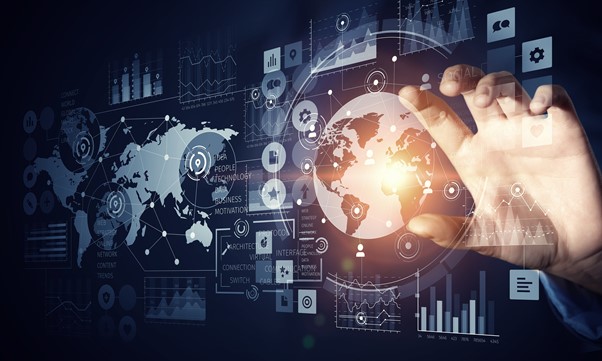The terms ‘decentralization’, ‘decentralized’, etc. are making the rounds quite a bit these days; they are not new terms, nor are they new concepts – but with the advent of technologies such as blockchain and internet of things, the idea of decentralizing technology is gaining popularity, and there are people out there that think decentralization could solve a lot of problems.
Decentralization has potential in a range of sectors and fields. From Financial systems, emerging technologies, and even political structures could become radically transformed with decentralization. We spoke with TechQuarters, a London IT support company that has been following the progression of decentralized technologies for a while – from blockchain, to the internet of things, the world of decentralized tech is highly fascinating – they provided some insight into how it’s all changing and evolving.
What is Decentralization?
The definition of decentralization is simply, the process of re-distributing functions, powers, people, or things away from a central location or authority. This is quite a broad term, and can be applied to a lot of things. For example, in blockchain, decentralization refers to the way in which control and decision-making is deferred away from a centralized entity, such as an individual, organization, or other type of group; and instead, all decision-making and authority is distributed across a network.
TechQuarters told us that the purpose of a decentralized network is to reduce the amount of trust that users must place in each other – this sounds like a bad thing (mistrust can lead to conflict), but in the context of blockchain and decentralized networks, it is similar in principle to zero trust. Zero trust is the most secure form of cyber security model that the top IT managed services London providers offer. What it also does is reduce users’ ability to exercise authority or control over other users, therefore it helps to maintain a democratic, functional network.
Examples of Decentralized Tech
There are many different types of technology where decentralization can be applied for a range of benefits.
Blockchain
This is what you might call a natively decentralized technology, because the foundations of blockchain technology are highly distributed in nature. A blockchain refers to a string of information, each unit of which is called a block. Each block contains hashed data on the previous block, as well as a timestamp, and transaction data – altogether this forms a unit of information that is almost impossible to re-write. What is more, because each block contains information on the one preceding it, it is impossible to re-write and alter a block without changing the entire chain the follows it – therefore a blockchain is almost completely immune to hackers.
Blockchain has a range of applications; the most well-known of which is in the form of decentralized, digital currency, commonly known as cryptocurrency (the reason for which is that blockchain is based on cryptographic principles). The first and most famous cryptocurrency is BitCoin, but there are hundreds of thousands of different blockchain currencies out there. Cryptocurrency is seen as a major disruptor in the financial sector, because it does not rely on any central authority (such as a country’s bank) to be verified. What is more, there is a huge amount of stability built into cryptocurrency transactions.
Another application of blockchain – which could prove to be very valuable in business, and in fields like IT support – is in Cyber Security. As blockchain is built on cryptography, the data within a blockchain is nearly immutable – this is because blockchain data is hashed, which is an almost irreversible process where data is converted into a string of data (each string is identical in length, regardless of how much or how little data was hashed). Hashing is much harder to reverse than, say, encryption, where all one needs is the cipher to be able to decrypt the data.
Why does Decentralization matter?
Decentralization, as a concept, has been heavily debated since the French Revolution. Many people across the world feel that decentralization is more democratic, and reduces the ability of any government, system, or network to be able to act outside of the interests of everyone involved.
Decentralization has different benefits depending on what context you are talking about. For example, decentralization creates a trustless environment, which has been found to be the very best model for cyber security out there – for example, in a decentralized blockchain network, every participant has the exact same data (this is known as a distributed ledger); because every user knows they have the same data as every other user, there is no need to know or trust anyone else. What is more, if one member’s data is altered or corrupted, the data will be rejected by the rest of the network – therefore no confusion around the data can occur.


